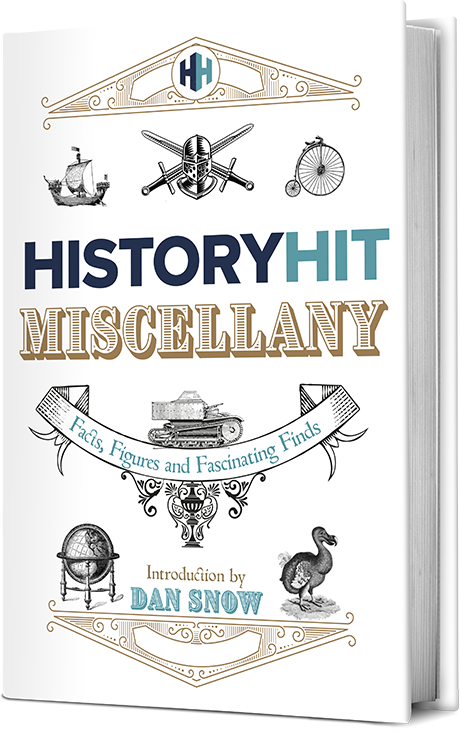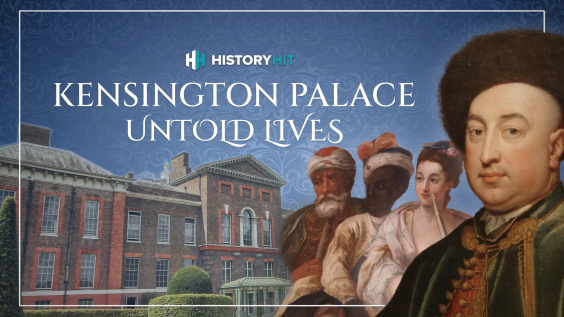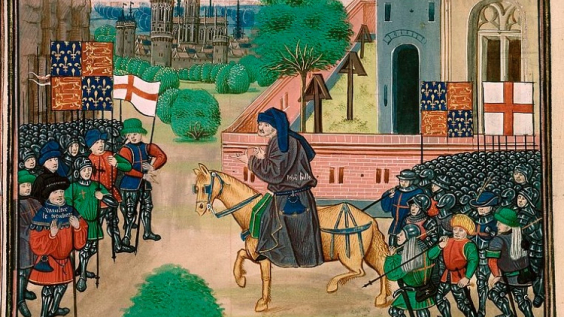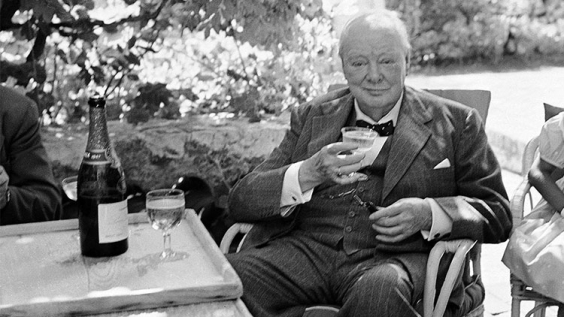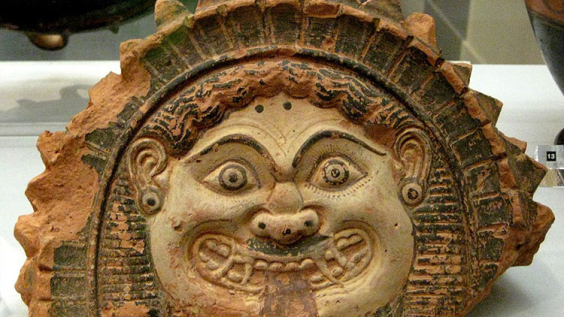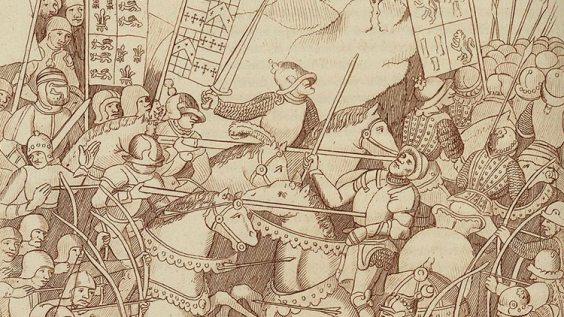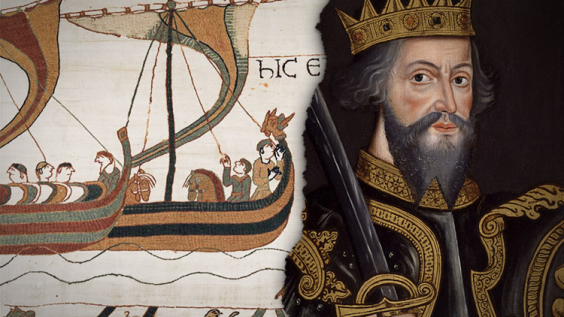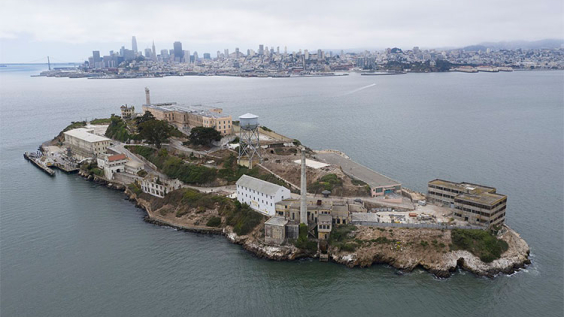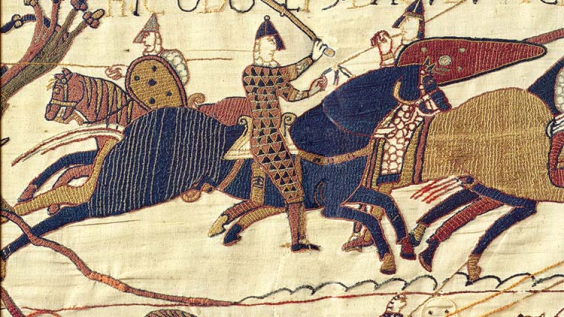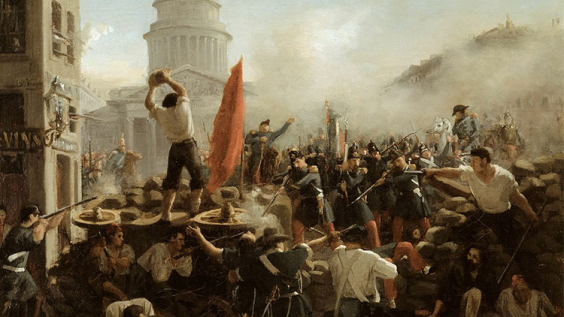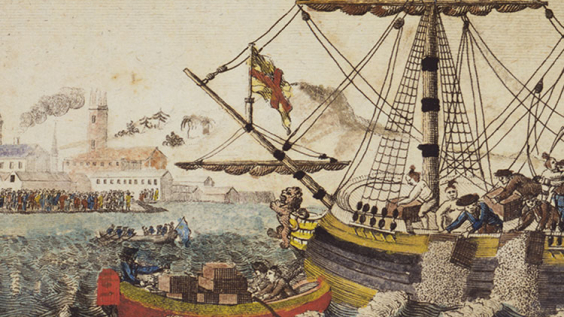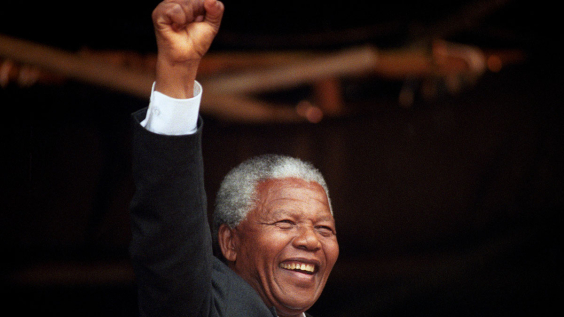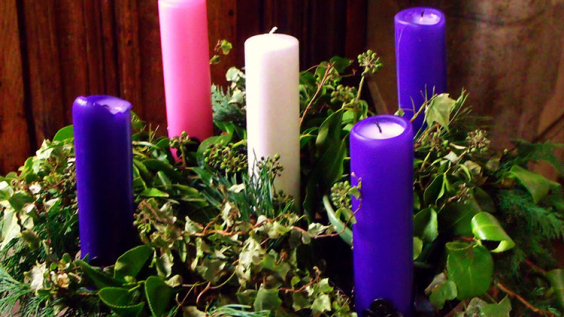
The Battle of Borodino is notable for being the bloodiest engagement in the Napoleonic Wars – no mean feat given the scale and ferocity of the fighting during Napoleon Bonaparte’s reign.
The battle, fought on 7 September 1812, three months into the French invasion of Russia, saw the Grande Armée force General Kutuzov’s Russian troops into a retreat. But Napoleon’s failure to achieve a decisive victory meant that the battle was hardly an unqualified success.
Here are 10 facts about the Battle of Borodino.
1. The French Grande Armée launched its invasion of Russia in June 1812
Napoleon led a huge force of 680,000 soldiers into Russia, at that time the largest army ever assembled. Over the course of several months marching through the west of the country, the Grande Armée fought the Russians in a number of minor engagements and in a large battle at Smolensk.
But the Russians kept retreating, denying Napoleon a decisive victory. The French finally caught up with the Russian army at Borodino, a small town about 70 miles west of Moscow.
2. General Mikhail Kutuzov commanded the Russian Army

Kutuzov had been a general at the 1805 Battle of Austerlitz against France.
Barclay de Tolly assumed supreme command of the 1st Army of the West when Napoleon invaded Russia. However, as a supposed foreigner (his family had Scottish roots), Barclay’s standing was fiercely opposed in some quarters of the Russian establishment.
After criticism of his scorched earth tactics and defeat at Smolensk, Alexander I appointed Kutuzov – previously a general at the Battle of Austerlitz – to the role of commander-in-chief.
3. The Russians made sure the French found supplies hard to come by
Both Barclay de Tolly and Kutuzov implemented scorched earth tactics, continually retreating and ensuring Napoleon’s men suffered a dearth of supplies by razing farmland and villages. This left the French to rely on barely sufficient supply lines that were vulnerable to Russian attack.
4. French forces were heavily depleted by the time of the battle
Poor conditions and limited supplies took their toll on the Grande Armée as it made its way through Russia. By the time it reached Borodino, Napoleon’s central force had been depleted by more than 100,000 men, largely due to starvation and disease.
5. Both forces were considerable
In total, Russia fielded 155,200 troops (comprising 180 infantry battalions), 164 cavalry squadrons, 20 Cossack regiments and 55 artillery batteries. The French, meanwhile, went into battle with 128,000 troops (comprising 214 infantry battalions), 317 squadrons of cavalry and 587 artillery pieces.
6. Napoleon chose not to commit his Imperial Guard

Napoleon reviews his Imperial Guard during the 1806 Battle of Jena.
Napoleon opted against deploying his elite army in the battle, a move that some historians believe could have delivered the decisive victory he craved. But Napoleon was cautious of putting the guard at risk, especially at a time when such military expertise would have been impossible to replace.
7. France suffered heavy losses
Borodino was a bloodbath on an unprecedented scale. Though the Russians came off worse, 30-35,000 of the 75,000 casualties were French. This was a heavy loss, especially considering the impossibility of raising further troops for the Russian invasion so far from home.
8. France’s victory was also far from decisive
Napoleon failed to land a knockout blow at Borodino and his diminished troops were unable to mount a pursuit when the Russians retreated. This gave the Russians an opportunity to regroup and gather replacement troops.
9. Napoleon’s capture of Moscow is widely considered a Pyrrhic victory
 Watch Now
Watch NowFollowing Borodino, Napoleon marched his army into Moscow, only to find that the largely abandoned city had been destroyed by fires. While his exhausted troops suffered the onset of a freezing winter and made do with limited supplies, he waited five weeks for a surrender that never arrived.
Napoleon’s depleted army ultimately went on to make a weary retreat from Moscow, by which time they were extremely vulnerable to attacks by the replenished Russian army. By the time the Grande Armée finally escaped Russia, Napoleon had lost more than 40,000 men.
10. The battle has had a significant cultural legacy
Borodino features in Leo Tolstoy’s epic novel War and Peace, in which the author famously described the battle as “a continuous slaughter which could be of no avail either to the French or the Russians”.
Tchaikovsky’s 1812 Overture was also written as a commemoration of the battle, while Mikhail Lermontov’s romantic poem Borodino, published in 1837 on the 25th anniversary of the engagement, recalls the battle from the perspective of a veteran uncle.

